From Seed to Need
- By Sheila Cassani
- Reading Time: 5 mins.
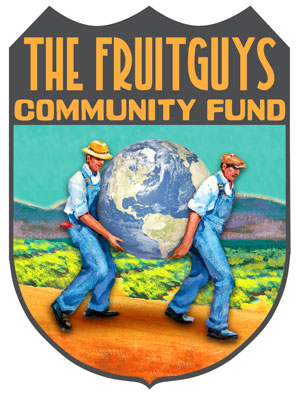 The FruitGuys Community Fund, a nonprofit fiscally sponsored project of Community Initiatives, will award small American farms and agricultural nonprofits a total of $35,643 in 2015 for sustainability projects intended to have a positive impact on the environment, local food systems, and farm diversity.
The FruitGuys Community Fund, a nonprofit fiscally sponsored project of Community Initiatives, will award small American farms and agricultural nonprofits a total of $35,643 in 2015 for sustainability projects intended to have a positive impact on the environment, local food systems, and farm diversity.
More than 70 applicants from all over the country applied for the 2015 grants. The eight recipients were chosen based on their proposed project’s scores in the Community Fund’s 2015 areas of focus: pollination, soil health, water conservation, and energy efficiency. Preference was also given to farms that increase low-income consumers’ access to fresh produce.
This year, the Fund recruited volunteers from across the country to assist in the grant review process. “Soliciting the community for volunteers was such a great idea. Not only did it bring in people with diverse backgrounds and viewpoints, it enlisted the support of the community in promoting the Fund’s mission,” said Michigan’s Joanna Randazzo, volunteer grant reviewer. Reviewers did not need any specific agricultural expertise and were trained on how to score the projects.
Meet the Class of 2015
The 2015 grantees’ farms are located in California, Maryland, Illinois, and New Jersey. Their projects range from solar-powered greenhouses and irrigation systems to beehive installations and habitats for pollinators and beneficial insects.
“The 2015 grantees represent an incredible breadth of work happening in so many formats, from urban to rural, for-profit and nonprofit. It is truly inspiring to see this movement rising up from the soil,” said Thomas Nelson, board member of The FruitGuys Community Fund.
Want farm-fresh fruit?
We've got you covered.
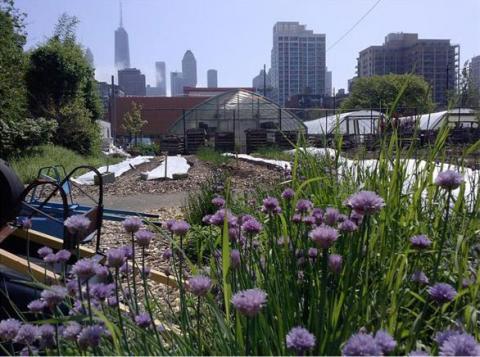
Chicago Lights Urban Farm, a nonprofit organization in Chicago, IL, leases a ¾ acre of land from the Chicago Housing Authority in the Near North neighborhood, a neighborhood transitioning from 100 percent public housing to a mixed-income community. The urban farm empowers youth and allows community residents in the surrounding neighborhood to have better health and increased economic opportunities through access to organic produce, nutrition education, workforce training, and microenterprise development. Their $5,000 grant will fund solar panels for their greenhouse, which is used for early seeding, year-round production, education programs, and community outreach events.
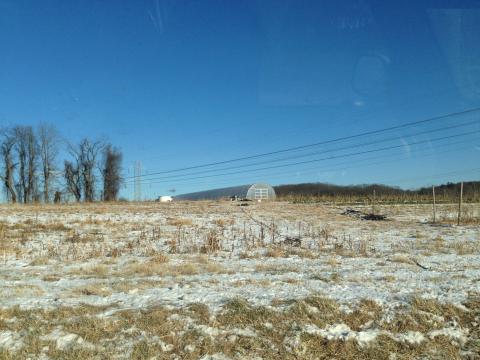
Berean Hill Farm was started in Sparks Glencoe, MD, by Nancy Bjornard and Audrey Swanenberg in 2014 after attending Future Harvest—the Chesapeake Alliance for Sustainable Agriculture’s Beginning Farmer Training Program. The farm is in the process of becoming Organically Certified. With their $3,512 grant, they will install solar-powered and drip-irrigation systems across the farm. This system will allow them to pump water from a stream that flows through the property to a 3,000-gallon cistern. They intend on sharing information on how this system can be replicated by other small-scale farmers.

Milk and Honey Meadows Farm, an 18-acre family farm in Lakewood, NJ, raises dairy goats, sheep, and organic vegetables. The farm relies on honeybees, native bees, and other insects for pollination and employs pollinator-friendly practices whenever possible, including leaving field borders unmowed, planting annuals with excess pollen (like sunflowers), and employing beneficial insects for crop protection. They currently have one active beehive on the farm. Their $4,363 grant will allow them to expand their apiary by six hives, establish a pollinator habitat, and build a beehive observatory for their on-farm classes on pollinators’ importance to the environment and agriculture.
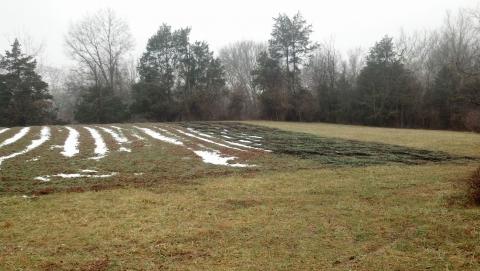
Want farm-fresh fruit?
We've got you covered.
Chocolates and Tomatoes Farm in Poolesville, MD, is a four-acre farm that strives to be sustainable, colorful, and delicious. Operated by farmer and chocolatier Mark Mills, the farm donated 40 percent of their harvest last year to area food banks, including Manna Food Center in Gaithersburg, MD. Their $4,925 grant will allow Chocolates and Tomatoes to plant two acres of permanent pollinator habitat, establish erosion-reducing terracing on a ¼-acre of ground with a steep grade, as well as construct a 20×48-foot high tunnel on the terraced area to further reduce water run off. The high tunnel will be exclusively used to grow food for donation to Manna Food Center.
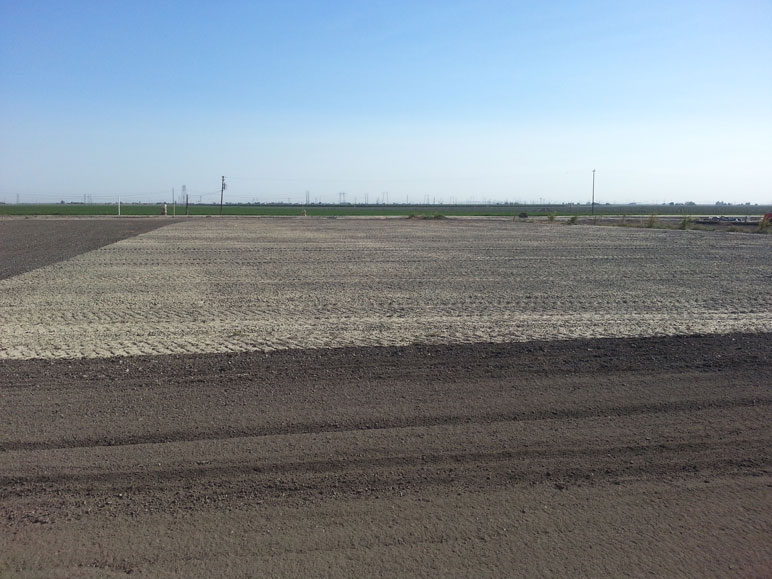
South Central Farmers’ Cooperative leases 80 acres in Buttonwillow, CA from its parent nonprofit, South Central Farmers’ Health and Education Fund. They grow a diversified selection of vegetable crops that are distributed in the Los Angeles area to 3,000 CSA members and at 17 area farmers’ markets. Their CSA has no subscription fee and their produce box has sliding-scale pricing, making it affordable to all. Remaining vegetables are processed into culturally appropriate, value-added products at South Central’s kitchen/cannery incubator. Approximately 20,000 pounds of produce per year are donated to local food banks and sold at very low cost in low-income neighborhoods. Their $5,000 grant will be used to improve soil health on 30 acres of their farm and hold workshops for agricultural workers interested in organic and sustainable farming methods.
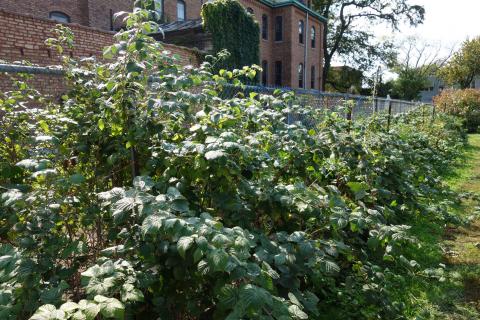
The Pie Patch Farm, run by Breanne Heath in Chicago, IL, spans just less than half an acre. It is located in the Back of the Yards neighborhood at the headquarters of Su Casa Catholic Worker, an organization that provides resources to homeless Latino families. Since 2010, Heath has offered a pick-your-own model where guests pay per container and can pick and fill it. Half of the produce grown by The Pie Patch is donated to Su Casa. Their $3,033 grant will fund a drip-irrigation system, plants for pollinator hedgerows, and seeds for living mulch that will help the soil retain moisture.
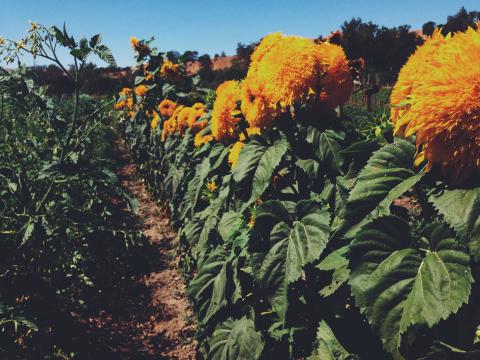
Happy Acre Farm in Sunol, CA, is a two-acre farm that is a part of SAGE (Sustainable Agriculture and Education)’s 20-acre AG Park. Operated by Helena Tuman and Matthew Sylvester, Happy Acre is certified organic by CCOF and donates regularly to the Alameda and Contra Costa County Food Banks. Their $4,868 grant will allow them to create habitat for beneficial insects, increase the health and fertility of their soil by applying organic cover crops and compost, and implement weed management techniques with periodic tractor work and a hand tool called a wheel hoe.
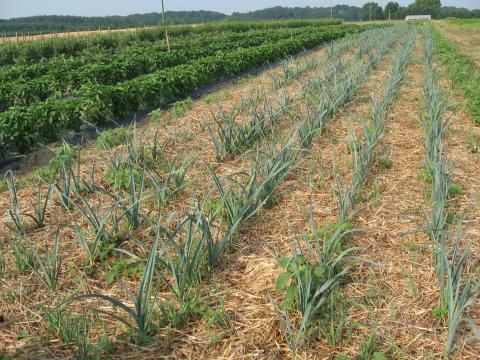
Colchester Farm Community Supported Agriculture is a nonprofit organization that grows a wide variety of produce on 15 acres of leased land in Georgetown, MD. In addition to distributing its produce through 170 CSA shares, Colchester Farm offers a robust apprenticeship program, including a partnership with Future Harvest, the Chesapeake Alliance for Sustainable Agriculture Beginning Farmer Program. It also offers programs that give kids hands-on interaction with their food and the fields in which it is grown. Colchester Farm will use its $4,942 grant to expand its apiary, plant native pollinator habitat, and establish a blueberry patch protected with an electrified deer fence to prevent significant crop loss.
The 2015 grant recipients will share updates on their projects in August, December, and April.
The FruitGuys Community Fund will issue its call for applications for the 2016 grant cycle in December 2015.
Want farm-fresh fruit?
We've got you covered.
Want to get more involved?
- Volunteer on our Grant Review Committee. Help decide which projects get funded in 2016. For more information please email volunteer@fruitguyscommunityfund.org.
- Sign up for The FruitGuys Community Fund newsletter and receive project updates.
Sheila Cassani is The FruitGuys GoodWorks Ambassador


